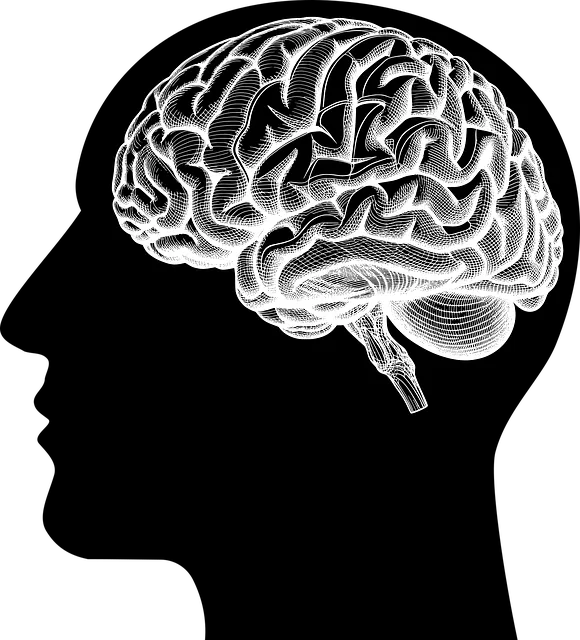Mental health conditions significantly impact social interactions and well-being, with various challenges like communication difficulties and emotional regulation problems. Kaiser Permanente behavioral health services reviews in Centennial emphasize addressing these issues through programs focusing on social skills and stress management. Their holistic approach includes training healthcare providers, role-playing scenarios, group therapy, peer support, cultural competency, and public awareness campaigns, all aimed at enhancing mental well-being and fostering meaningful social connections. These comprehensive services have proven effective in improving mental health outcomes within the Centennial community.
Social skills training plays a pivotal role in managing mental health conditions, fostering better interactions and overall well-being. This comprehensive guide explores how programs like those offered by Kaiser Permanente Behavioral Health Services can transform lives. We delve into the impact of mental health on social relationships, highlighting the importance of specialized training. Through effective strategies and real-life case studies from Centennial communities, we showcase successful outcomes. Plus, learn about overcoming challenges and providing continuous support for sustained progress. Discover how these initiatives enhance lives, as evidenced by Kaiser Permanente behavioral health services reviews and Centennial success stories.
- Understanding the Impact of Mental Health on Social Interactions
- The Role of Kaiser Permanente Behavioral Health Services in Training
- Effective Strategies for Social Skills Development
- Case Studies: Success Stories from Centennial Communities
- Overcoming Challenges and Providing Ongoing Support
Understanding the Impact of Mental Health on Social Interactions

Mental health conditions can significantly influence an individual’s social interactions and overall well-being. The impact varies across different disorders, but common effects include difficulties in communication, emotional regulation, and forming meaningful connections. For instance, anxiety disorders may lead to avoidance of social situations due to fear of judgment or embarrassment, while depression can make it challenging to initiate conversations or maintain eye contact. Understanding these challenges is crucial for developing effective interventions.
Kaiser Permanente behavioral health services reviews highlight the importance of addressing social skills as a key component of treatment. By integrating programs that foster positive thinking and self-care practices, individuals with mental health conditions can learn coping strategies to navigate social environments more effectively. Mental Health Policy Analysis and Advocacy also plays a vital role in ensuring accessible resources and support systems for those facing these challenges, ultimately enhancing their ability to engage in meaningful social interactions.
The Role of Kaiser Permanente Behavioral Health Services in Training

Kaiser Permanente Behavioral Health Services plays a pivotal role in training and supporting individuals dealing with mental health conditions. Located in Centennial, their comprehensive programs focus on enhancing social skills essential for daily interactions and managing stress. These services are highly regarded for fostering a supportive environment, where participants can develop confidence and learn effective strategies to combat challenges related to burnout.
The training offered by Kaiser Permanente goes beyond mere theory; it incorporates practical exercises designed to improve communication, empathy, and emotional regulation. This hands-on approach is particularly beneficial for healthcare providers who often face intense work environments. By equipping them with burnout prevention strategies, the services contribute to better stress management, ensuring professionals can provide quality care while maintaining their well-being.
Effective Strategies for Social Skills Development

Social skills training plays a pivotal role in managing and improving mental health conditions, as highlighted by Kaiser Permanente behavioral health services reviews Centennial. Effective strategies for social skills development focus on teaching individuals how to navigate social interactions with confidence and ease. One such strategy involves role-playing scenarios that mimic real-life situations, allowing participants to practice their communication and emotional regulation techniques. This hands-on approach helps in building a repertoire of responses that can be adapted to various social contexts.
Additionally, group therapy sessions facilitate peer support and learning. Depression Prevention becomes more manageable when individuals share experiences, offer encouragement, and learn from one another. Self-Care Routine Development for Better Mental Health is also enhanced through these interactions, as members of the group can exchange strategies for managing stress, anxiety, and other mental health challenges. Moreover, risk assessment tools used by mental health professionals can be employed to identify potential triggers and develop targeted interventions, ensuring a more holistic approach to social skills training.
Case Studies: Success Stories from Centennial Communities

In many Centennial communities, social skills training has emerged as a powerful tool for improving mental health outcomes. Kaiser Permanente behavioral health services reviews consistently highlight the effectiveness of these programs, showcasing remarkable success stories that underscore the transformative power of structured interventions. One such program focuses on teaching conflict resolution techniques, empowering individuals to navigate interpersonal challenges with greater ease and confidence. By fostering a culture of compassion cultivation practices, these initiatives not only enhance social interactions but also contribute to overall well-being.
The integration of healthcare provider cultural competency training has been instrumental in these success stories. By equipping professionals with the knowledge and skills to understand and address diverse cultural needs, these programs ensure that everyone receives tailored support. This holistic approach, combining conflict resolution techniques, compassion cultivation, and cultural competency training, has led to improved social connections and mental health outcomes within Centennial communities, setting a benchmark for effective behavioral health services.
Overcoming Challenges and Providing Ongoing Support

Overcoming Challenges with Mental Health Conditions requires a comprehensive approach, and this is where Kaiser Permanente behavioral health services in Centennial stand out. Beyond initial therapy sessions, their dedicated team provides ongoing support crucial for long-term management of mental health issues. This continuous care model involves regular check-ins, skill-building workshops, and access to peer support groups, ensuring individuals don’t face challenges alone.
The focus on Confidence Boosting strategies is a key aspect of this process, as building resilience and self-assurance plays a vital role in navigating life’s hurdles. Additionally, the Center’s involvement in Public Awareness Campaigns Development highlights their commitment to fostering an understanding environment, reducing stigma, and encouraging early intervention. Crisis Intervention Guidance remains a cornerstone service, readily available to support individuals during acute episodes, demonstrating the comprehensive nature of Kaiser Permanente’s behavioral health services.
Social skills training plays a pivotal role in managing mental health conditions, fostering better interactions, and enhancing overall well-being. As evidenced by case studies from Centennial communities, programs like those offered by Kaiser Permanente Behavioral Health Services can significantly improve patients’ social functioning. By employing effective strategies tailored to individual needs, these initiatives not only empower individuals with mental health conditions but also create a supportive network that encourages ongoing recovery. For those seeking evidence-based solutions, Kaiser Permanente behavioral health services reviews highlight their success in helping communities thrive.






